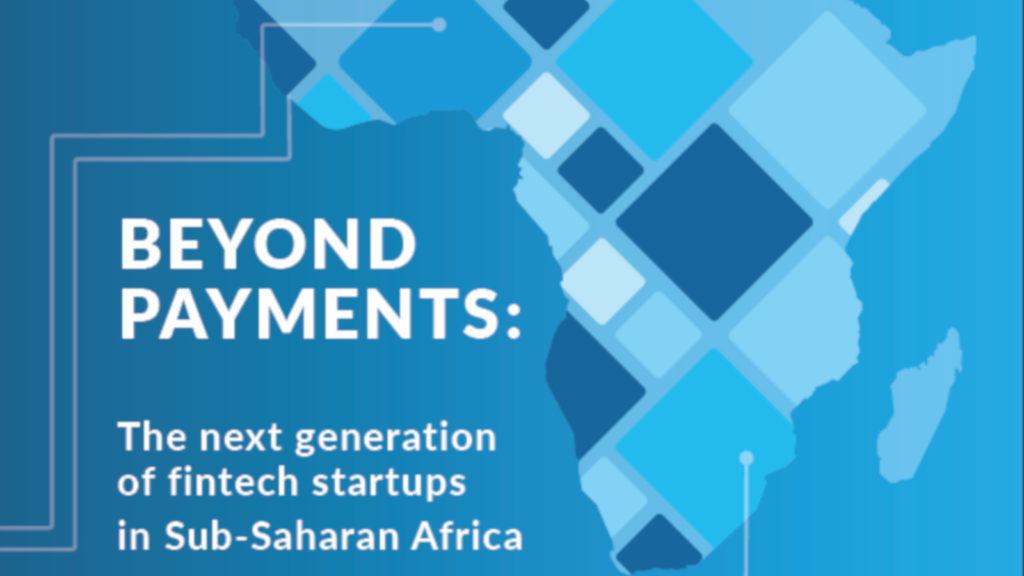Automotive heads-up displays are a recent fad that has been well received. With technology becoming faster more reliable, the use and acceptance of technology…
Payments space not over saturated in Africa argues Village Capital head

African fintech startups are beginning to branch out away from the payments space into other sub-sectors — such as agri-finance, insurtech and alternative credit scoring — a report by US-based venture capital (VC) firm Village Capital has found.
But the VC says this isn’t a sign that the payments sector in Africa is necessarily over saturated.
The report — released earlier this month and titled Beyond Payments: The next generation of fintech startups in Sub-Saharan Africa — is based on 165 fintech startups from 18 countries that applied to join Village Capital’s Fintech Africa 2018 programme, which the VC runs with US payments platform PayPal.
Village Capital stated in the report that it had “intentionally selected” from the 165 that had applied, 12 startups that are building solutions in fintech sub-sectors outside of payments (the 12 are Annona, Mazim Retirement Plan, CredPal, Numida, Ensibuuko, Patasente, Riby, Social Lender, Fpesa, Tulaa, GrassRoots Bima, and Youverify).
In addition, the VC says in the report that it believes that the future of fintech in Sub-Saharan Africa will be in the fintech sub-sectors that include insurtech, agri-finance, data analytics as well as alternative credit scoring and lending, among others.
Village Capital managing director Allie Burns says though the fintech payments space has become increasingly crowded, the sector is not over saturated
Yet while Village Capital managing Director Allie Burns acknowledged in an email to Venturburn that the payments space has become “increasingly crowded”, it was difficult, she said to say that any startup space on the continent has become over saturated.
“And as we’ve seen with other major innovations, first-movers are not always the winners in a category — so there’s certainly some room, albeit narrow, for new players to come on the scene.
“However, we think the more compelling opportunity is for building on top of the payments infrastructure, which has reached critical mass to enable this new generation of startups,” she said.
‘Investors paying more attention to alternative credit scoring and lending’
Burns also confirmed that investors are paying more attention to alternative credit scoring and lending, alongside payments and remittances.
The report suggests that VCs are investing more into alternative credit scoring and lending solutions. It highlights Branch International‘s $70-million raise, as well as the $65-million and $52-million rounds raised by Tala and Jumo, respectively. All three investments took place this year.
But, she added that the VC is seeing “emerging interest” in other sectors as well.
She believes a possible reason for VC’s focus on alternative credit scoring and lending could be as a result of group-think on the part of investors. “We talk often about pattern recognition and how it can cause investors to overlook opportunities,”she explained.
Another possible reason, she pointed out, is that investments in agriculture take longer to mature. “No one has cracked the code on solving agriculture problems just yet, but we admire companies in our cohort like Annona and Tulaa that are innovating around these challenges,”said Burns.
‘Huge potential in agri-finance’
Burns pointed out that there’s an estimated $50-billion funding gap for smallholder farmers in Africa. This means these farmers are unable to invest in quality inputs, seed and the fertiliser they need to improve their yields.
She advised startups operating in this sub-sector to “keep pushing” as the system is ripe for disruption.
“African smallholder farmers are operating at a fraction of their capacity. Africa is home to 60% of the world’s arable land that is still uncultivated. There’s huge potential there. Investors will come around,” she said.
And it seems governments are taking note. Burns said programmes like NIRSAL in Nigeria and the Togo Incentive-Based Risk Sharing System (TIRSAL) in Togo are indicative of governments’ shift to rethinking agri-finance.
Drivers of innovation in fintech sub-sectors
The report identifies three drivers of innovation within the agri-finance subsector, namely: government incentives in countries like Ethiopia, Rwanda, Togo and the Ivory Coast; the demand for all-in-one-apps; and strong support from agriculture incubators.
In the alternative credit scoring and lending space, the report attributes blockchain technology as cutting costs for startups developing solutions in this sub-sector. The report also suggests that lack of clear policies around regulation could also be encouraging digital lending startups, allowing them to “grow with fewer barriers, reach proof of concept and hit critical mass”.
In insurtech, the report points out, startups are using new tech-driven distribution models to reach the informal sector and small businesses.
Read more: Village Capital, PayPal launch African fintech investment readiness programme
Read more: Names of 12 startups announced for Village Capital Fintech Africa 2018


